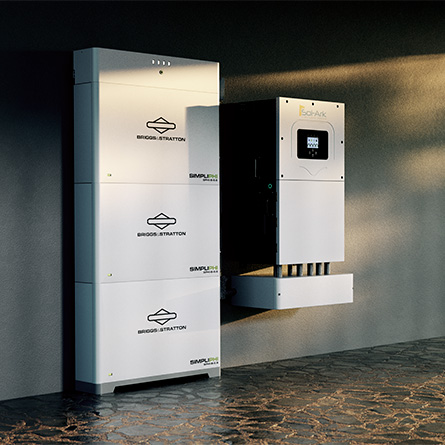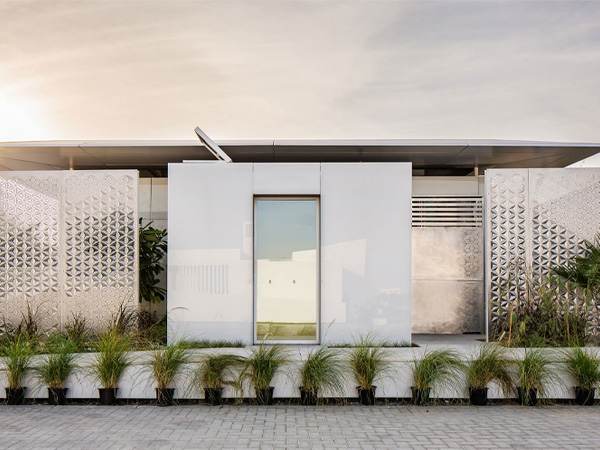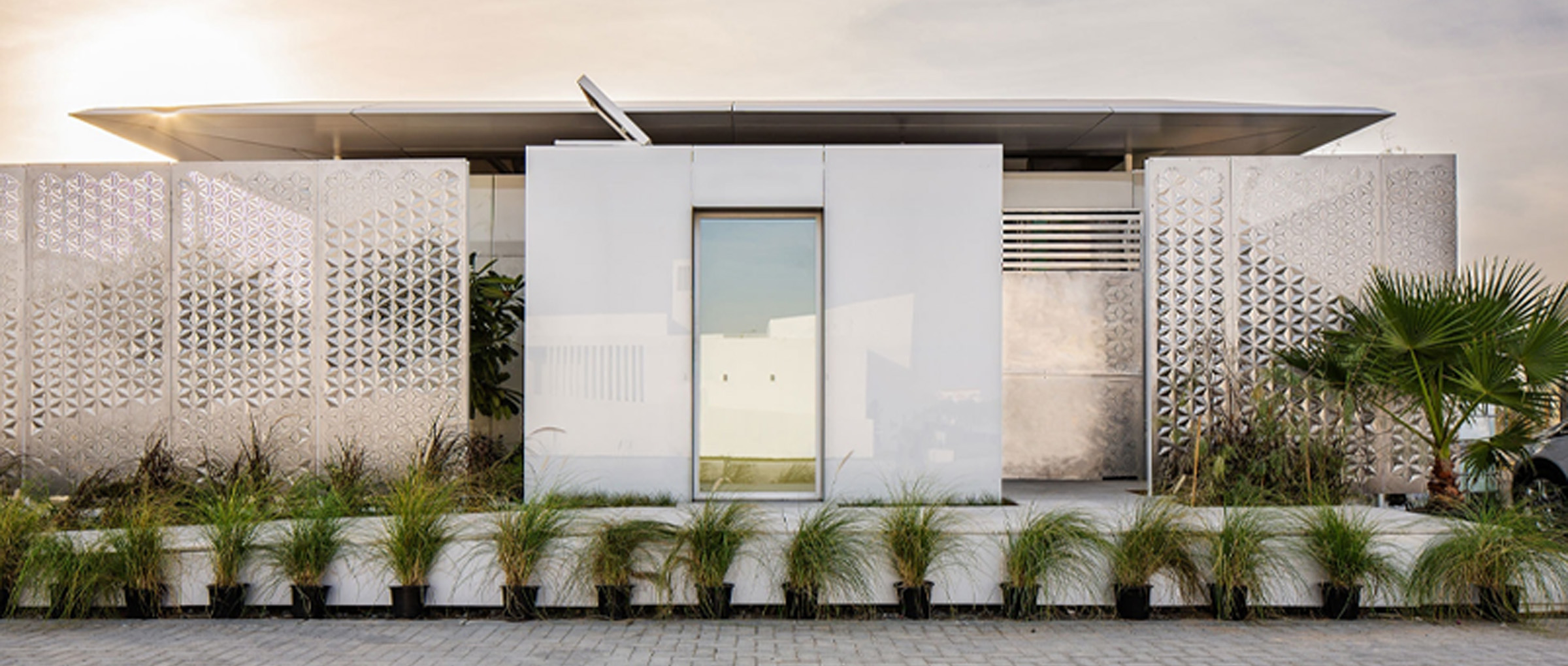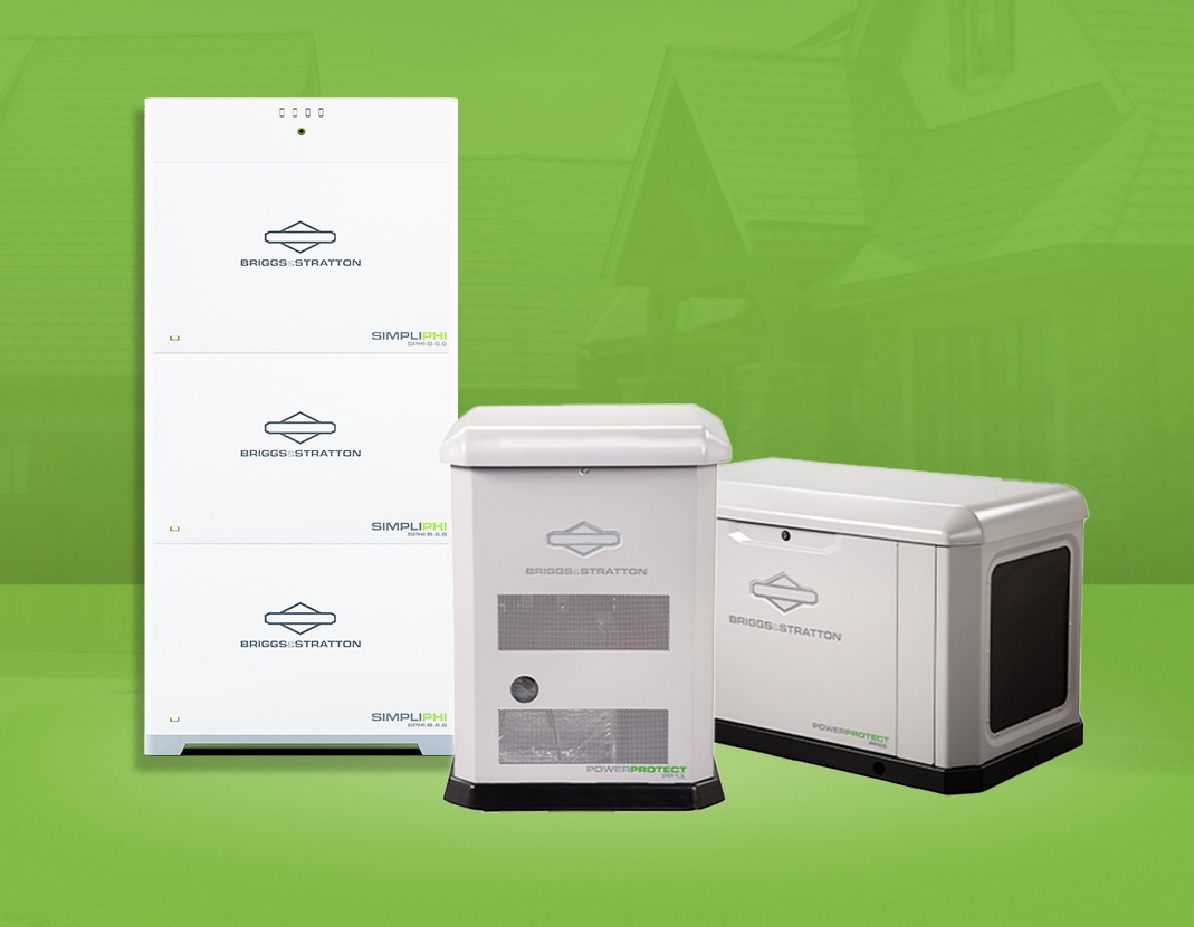In order to accelerate more efficient, sustainable home design & building, the U.S. Department of Energy created the Solar Decathlon Middle East (SDME) in 2018 in conjunction with the Dubai Supreme Council of Energy, and the Dubai Electricity and Water Authority (DEWA). SDME is an annual international competition in which universities from all over the world meet to design, build and operate grid-connected, solar+storage powered houses.

In 2019, SDME took place in Dubai. Beyond the challenge of building a home in only two weeks in a foreign location, the 2019 university teams had to adapt their designs to perform in Dubai’s high heat and humidity.
Virginia Tech was the competition’s only U.S. participant. Their “FutureHAUS Dubai” team included 65 students and 15 faculty members. Knowing that their 100% solar-powered house would succeed or fail based on the performance of the solar+battery system in Dubai’s extreme climate, FutureHAUS sought a battery solution that was highly efficient, not prone to thermal runaway and did not require any additional cooling equipment. As the competition imposed a strict battery size limitation of 15-kilowatt hours as well as house size limits, FutureHAUS knew they also needed an energy-dense, compact, and modular battery system.


After running robust tests on both the Tesla Powerwall and PHI 3.4 batteries, FutureHAUS opted for PHI batteries because they “continually outperformed the Powerwall,” said Laurie Booth, a Virginia Tech architecture student. “The competition required perfect performance, and [the PHI] batteries delivered.”
Matt Erwin, an electrical engineering student, explained,
“We selected the PHI batteries because they were quick and easy to install on-site in Dubai, especially compared to other batteries. They have terrific storage and charge/discharge capacity, which were the best fit for our house. They also have great cycle life, a tunable depth of discharge, a built-in Battery Management System (BMS) and safety disconnect.”
Given that the competition was focused on sustainable design, environmental footprints were also top of mind. “We also found that PHI batteries are the most environmentally friendly batteries on the market. All materials were recyclable. They do not use hazardous cobalt and are therefore not prone to thermal runaway or overheating. They also don’t have harmful gasses, so we could keep them within the house in a climate-controlled environment,” Matt continued.


Future HAUS’s grid-tied, DC-coupled solar+storage system consisted of four PHI 3.4 batteries for a total of 13.6kWh of energy storage, one 8kW OutBack Power Radian Series GS8048A inverter, 18kW of solar and five Schneider Conext MPPT 80-600 charge controllers.
This solar+storage system powered the entire FutureHAUS Dubai home, which included the typical house loads such as the oven, microwave, fridge/freezer, cooktop, entertainment systems, as well as electric vehicle charging, home automation and data acquisition systems.


FutureHAUS credited the PHI batteries with leading them to a first-place victory at SDME 2019, given that the performance of the entire prefabricated smart home depended upon the highly efficient, modular and heat-tolerant PHI batteries. With the help of PHI batteries, FutureHAUS has significantly advanced global sustainable building and energy-efficient design by proving that high-tech, 100% solar-powered homes do not need to sacrifice any modern conveniences -- no matter the climate.

“In addition to being a smart home, it’s a home that is energy positive,” explains Joseph Wheeler, FutureHAUS Lead Faculty, Professor of Architecture and Co-Director of the Center for Design Research at Virginia Tech. “What FutureHAUS proposes is a new way to build and a new way to live. For single-family homes and production homes, this is the way of the future.”
Virginia Tech’s FutureHAUS Dubai credited the PHI batteries with leading them to a first-place victory at Solar Decathlon Middle East 2019.

Ready to experience true energy independence?
Request a consultation with a Briggs & Stratton dealer or installer near you by clicking the button below.




